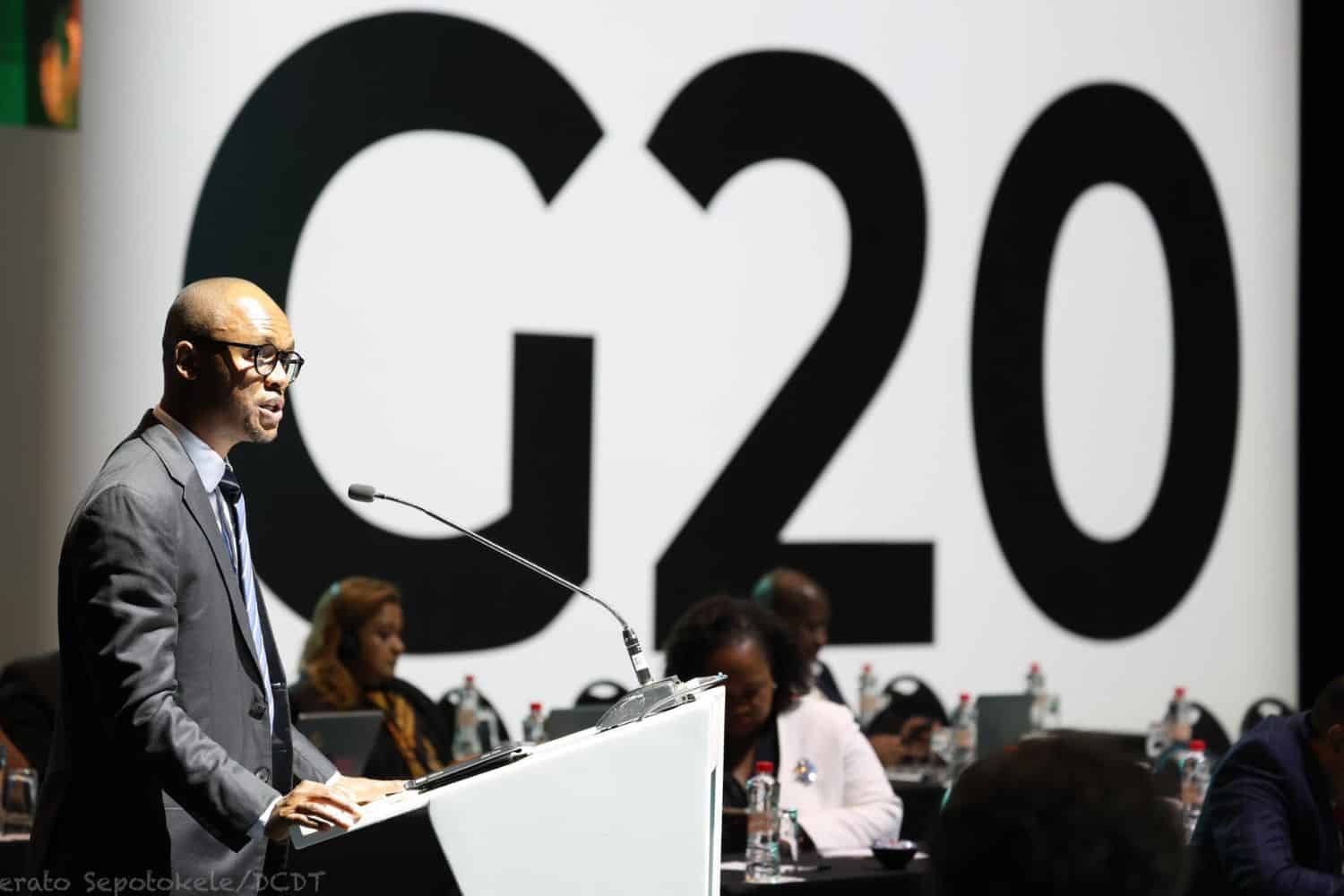The minister said AI comes with challenges such as data privacy, discrimination, misinformation and unequal access

Communications and Digital Technologies (DCDT) Minister Solly Malatsi says that as artificial intelligence (AI) becomes more embedded in people’s lives, the shift also brings about new responsibilities.
Malatsi was speaking at the opening of the G20 ministerial task force on AI, data governance and sustainable development, in Cape Town on Tuesday.
Ethical use of AI
The minister’s address echoed his comments from November last year, saying there must be a balance for the ethical use of AI in South Africa.
The task force was established in line with SA’s G20 presidency programme, with the aim to reflect the priority the South Africa Presidency attaches to AI, data governance and innovation as key enablers of sustainable and inclusive development
Task force
Malatsi said the task force is one of the cornerstones of South Africa’s G20 presidency.
“It represents our shared recognition that Artificial Intelligence is not simply another technological trend. It is a profound transformative force shaping how we live, work and engage with the world.”
The minister said as AI advances, the country is already witnessing challenges related to data privacy, discrimination, misinformation and unequal access.
“These realities highlight the urgent need for effective governance frameworks and shared principles to ensure that AI works in the service of all humanity.
“It reminds us that global dialogue on AI must be matched by practical action, capacity building and resource mobilisation, particularly for developing economies,” Malatsi said.
ALSO READ: SA to host G20 meetings on digital economy, AI and innovation in Cape Town
AI
Malatsi added that the adoption of United Nations General Assembly resolutions, together with the Global Digital Compact, has created a stronger foundation for safe, secure and trustworthy AI systems that are fair, transparent and accountable.
“India advanced this agenda through its focus on harnessing AI responsibly for good and for all, while Brazil helped translate principles into practice through the Unesco-supported AI for Good framework and the AI readiness and capacity assessment toolkit.
“South Africa now builds upon these achievements, grounding our presidency in Africa’s development priorities and a vision of shared prosperity. Many countries are actively engaging on these questions. France and Rwanda recently convened global forums to examine the opportunities and risks of AI,” he said.
The Brazilian G20 presidency placed AI at the centre of its digital agenda. Next year, India will host the AI for Impact Summit, continuing this global momentum.
Digital divide
Malatsi said AI cannot be divorced from the broader challenge of the digital divide.
“Today, nearly one-third of humanity, approximately 2.9 billion people, remain offline. If AI is to become a true catalyst for inclusive development, [then] connectivity, affordability and access must form part of our shared agenda.”
“Our goal is clear: to ensure that artificial intelligence is a force for good, driving equitable growth, deepening innovation and strengthening the bond between technology and humanity,” Malatsi said.
The minister said South Africa will host the AI for Good Impact Africa Summit in Johannesburg on 31 October.
ALSO READ: SA and China agree to collaborate on AI and innovation
Support Local Journalism
Add The Citizen as a Preferred Source on Google and follow us on Google News to see more of our trusted reporting in Google News and Top Stories.






